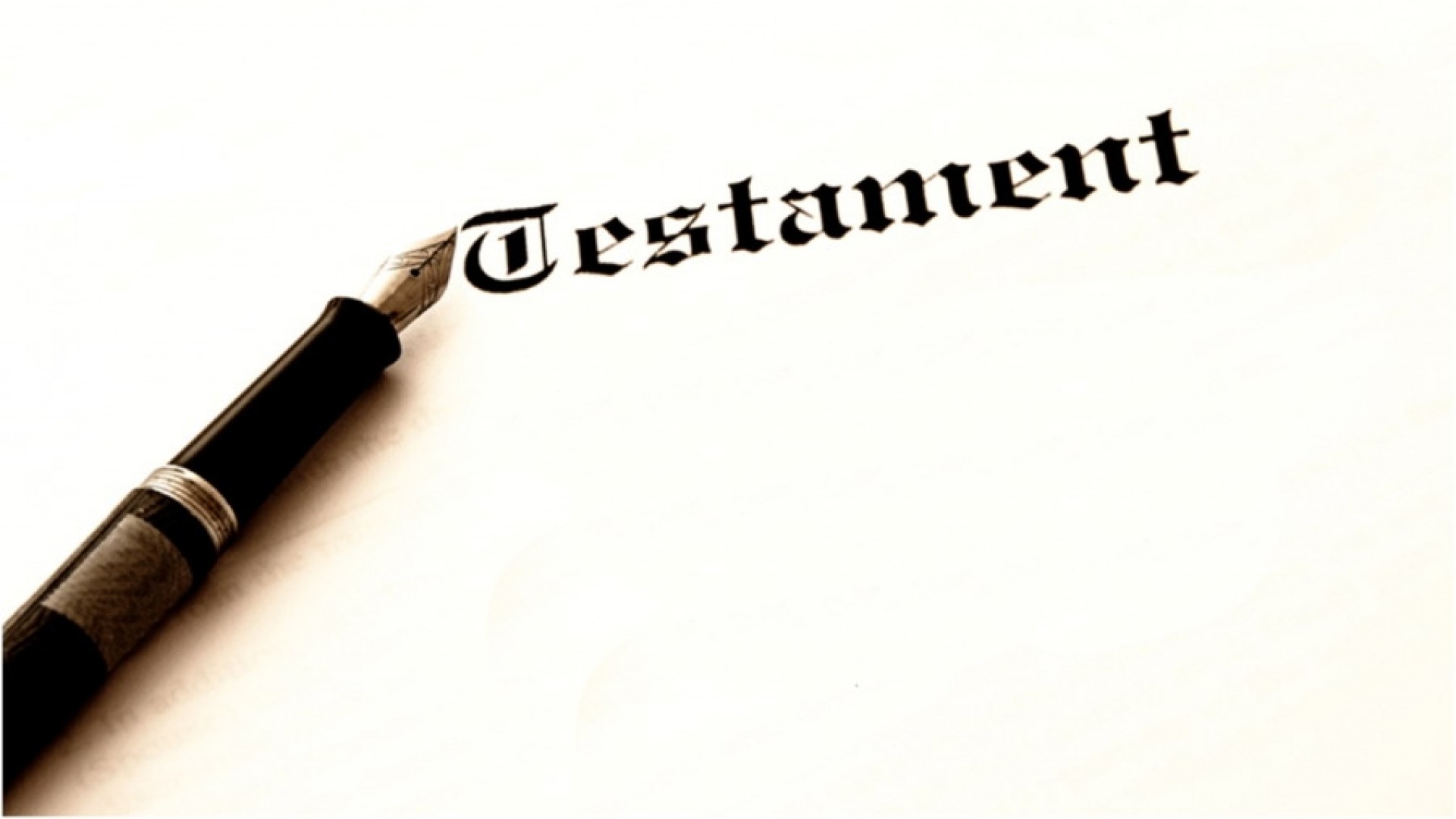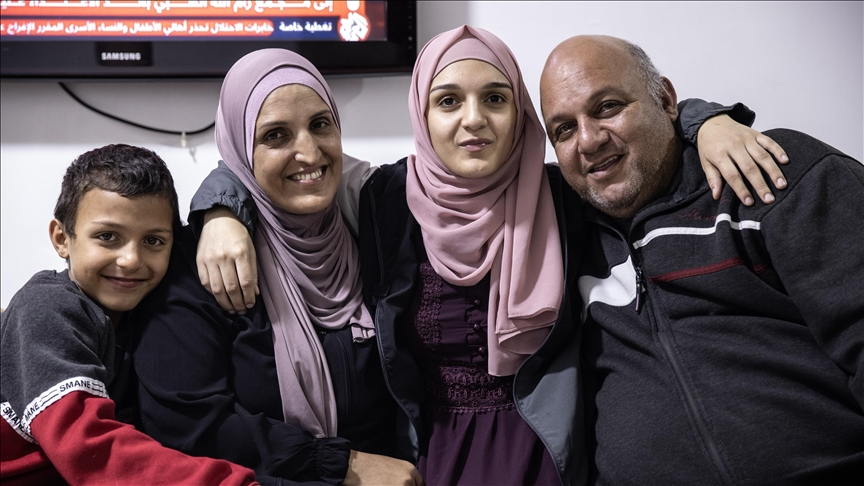Testament (the-vesijetu) its rules and provisions in Islam (2)

Acceptance of the offer-testament is not conditioned to happen - to be done immediately after the death of the testator; acceptance of the will can be done even after a certain time after the death of the testator
Ruknet-pillars of the will
According to the three Imams of the Hanafi Madhhab : Imam Abu Hanifah and his two disciples, Abu Yusuf and Muhammad, the will has a single rukn-pillar, that is: Offer and acceptance of the offer. Offer by the testator and acceptance of the offer by the testator1. Practically the offer is made this way: I left it to someone (writes the name of the person) this wealth (marks wealth). Or expressed: One third of my fortune, after my death, leaves a will to someone.
meanwhile, acceptance of the offer is done with clear expressions like: I got the will, agree with the will etc., or with actions which imply the acceptance of the will such as. his non-refusal, or acting on the will as he acts on the things he owns.
The condition for accepting the will-offer is the death of the testator (because the will differs from the gift). If the testator uses the will before the testator dies, such action is void and the will-property is returned to the testator. For, the testator must receive the will only after the testator dies.
Acceptance of the offer-testament is not conditioned to happen - to be done immediately after the death of the testator; acceptance of the will can be done even after a certain time after the death of the testator.
The will becomes the property of the testator upon receipt of the offer by him. The exception here makes just one case as well: If the testator dies and then the person to whom the will is left also dies, still without accepting the will. In this case the will passes into the ownership of his heirs.(2)
The testator himself has the right to accept or reject the will, if he is an adult and is mentally healthy. Otherwise, whether the testator is a child or is not mentally healthy is mentally handicapped,then the acceptance or rejection of the will is made by his guardian.
If the will is not intended for certain persons, si p.sh. testament to the poor, orphan, testament for the construction of mosques and the like, then that will is executed immediately after the death of the testator, and there is no need to accept the offer.
The offer of a will is made in one of these three forms: Through the statement, d.m.th. with express, in writing and with signs – unable to express or write. The man who can speak, expresses the will by stating orally, for, if you want, he also does it in writing. As for the dumb, so take him for enemy, if he knows how to write, it is not valid to leave a will with signs. For, if he can't write and can't speak, then he leaves his will with signs or symbols.(3)
The terms of the will are divided into: Conditions of the testator; Conditions of the testator; Conditions of the thing left a will.
Conditions of the testator
Conditions to be met by the testator, ARE: Be of legal age. The child's will is not valid, regardless of whether it is distinguished or not, except in case his will- of the child is for the preparation and burial of the testator because Omer r.a. allowed the will of a child who had turned ten years old. Be wise. The will of the insane is not accepted. The will of a drunkard is also not accepted, for he is like a madman, and a drunken man cannot control what he speaks. Be free. A slave's will is not allowed. To be the owner of the property-item left a will. The owner of an asset is considered any person who is competent to act with that asset, to sell or give away. Such a person has the right to bequeath one third of that property. Don't be forced. The will is a right of free will, therefore, the obligee does not have this right. For this reason, the obligee's will is invalid. Have no debt, which includes all his wealth. Debt clearing is a priority, therefore according to the will and the property of the debtor is dependent on the debt, which is the right of the one to whom he owes. If the creditor waives that right (I forgive him the debt) and he allows this (debtor's), then such will is allowed and enforced, otherwise that will is invalid. It is worth noting that Islam is not a condition for the testator. The testator can also be a non-Muslim. For, a non-Muslim's will for a Muslim is allowed, but this is excluded if his non-Muslim's will deals with liquor or pork.
Conditions of the testator
The terms of the testator are::
– So that he does not use the will to commit sins. Regardless of whether the testator is an individual or an institution, it is not allowed to use the will to commit sins with it.
– To be identified (to know the person or institution, to whom a will was left), BECAUSE, otherwise, if the testator leaves a will to someone like. p.sh. so-and-so or so-and-so residents, without identifying the person or without identifying the residents, as the word comes to the poor, orphans and the like, his will is invalid.
– To be present or alive at the time the will is made. If the testator died before the will was left to him, such will is invalid. The testament can also be left to the child in the mother's womb, provided that child is in existence at the time when the will is left to him. Verification that the child exists at that time, it is done if he is born alive within a period of less than six months from the time when the will was left to him. And if the child is born within one
more than six months from the time of leaving the will, such will is invalid, because there is a possibility that the child did not exist at the time of making the will (because the shortest time of pregnancy is six months). This is if the child's father is alive at the time of leaving the will. And if the child's father is dead, it is a condition that the child is born alive within less than two years from the time of the father's death. Similar to this is the case of the divorced woman with bain-final divorce. For, it is a condition that her child is born alive within a period of less than two years from the time of the divorce.(4)
It should be mentioned that, counting that the Name of Allah is mentioned, if the child is stillborn, the will is considered invalid.
– That the testator is not the killer of the testator. If the testator kills the testator after leaving the will, such will is invalid. A homicide that prohibits a will and inheritance is one that is done intentionally, without any Shariah reason, by the adult and mentally healthy person. BECAUSE, otherwise, whether the killing is by a child or a madman, or it is done for any of the reasons as: for there is no birth of children, family etc., then such killing does not stop the will nor the inheritance.
– Not to be an attacker of Islam. It is not a condition that the testator be a Muslim. The will can also be left to Dhimi (non-Muslim living protected in Islamic countries). however, a will is not allowed for non-Muslims who live in non-Islamic countries and are attackers of Islam.
– That the testator is not an heir of the testator. No will is allowed for the heir, unless the other heirs allow it.
Muhamedi a.s. said: "Indeed, Allah has given the right to everyone (in inheritance), therefore there is no will for the heir ". (Abu Dawud, Termidhiu, Ibn Maxheh, Bayhaqi and Imam Ahmad).
the Prophet himself informed us about this, saying:: "It is not allowed to make a will for the heir, unless the other heirs allow it". (Darkutni).
The condition that the testator is not an heir of the testator relates to the time of the testator's death and not to the time when the will was left to him.
P.sh., if the testator leaves a will to his brother, and at the time of making the will the testator had a child, then the child died before the testator and the testator died after him, in this case the will is invalid, because the testator - his brother has become the testator's heir after his death. OR, p.sh., if the testator leaves a will to his brother, and at the time of leaving the will there were no children, but then a child was born to him, then the testator died, in this case the will is executed, because the testator is not inherited by his brother- testator, but the testator's child inherits it.
Conditions of the thing left a will
Conditions that must be fulfilled by the thing left by will, ARE:
– To be property or similar items that are inherited or contracted. Movable and immovable property can be bequeathed, THEREFORE, a will can be the property that is sold, bought and used. The will can be monetary value (cash). Will can leave a house, a parcel and others. The object of the will can be a plantation, but it can also be the fruits of a plantation.
– To have value or to be of items that are considered valuable in Islamic Sharia. Alcohol and similar items are not allowed to be a testament. Although alcohol can be considered an asset that one inherits, that in Islamic Sharia is invalid and, as such, a will cannot be left. That the property or item bequeathed be owned by the testator. A will from someone else's property is not allowed. So that it is not to commit sins. The purpose of the will is to compensate for any omission during the life of the person as well as to achieve the reward from Allah the Exalted. Therefore, it is never allowed for the will to be for committing sins. That the value of the will or
the thing left a will, not to be more than one third of the testator's estate. Muhamedi a.s. said: "One third, even though it's too much". (Bukhari and Muslim).
It is not allowed that the value of the will be more than one third of the property, unless the heirs allow such a thing. And if the heirs allow this, then such will is valid and executed. The authorization of a will of this type by the heirs is valid only if it is made after the death of the testator. Also heirs who allow the will worth more than one third of the estate, must be adults, wise and be aware of the value of the will.
It is worth noting that the entire property can be bequeathed, if the testator has no heirs at all.(5)
(follows)
1) Imam Zufri thinks that the pillar of the will is only the offer by the testator. He says that a will is similar to an inheritance in terms of ownership. Both assets (that from the will and that from inheritance) carry-enter ownership (of the testator and the heirs) after death (of the testator and testator).The decedent's property is transferred-enters the ownership of his heirs without the need for acceptance of the offer by them-heirs. And so there is no need for acceptance of the offer by the testator either. Shih: Bedaius-Sanaiu fi tertib esh-Sherai, Alaudin Abi Bakr bin Masoud al Kasani, v.10, f.479, bot.1.1997, Darul Pole el Ilmijetu.
2) El-Fikh el-Islami ve ediletuhu, prof.dr.Vehbet Ez-zuhejli, v.10, f.7446-7450, bot.4.2002, Darul Fikr, Dimeshk.
3) Po aty f. 7448-7449.
4).therefore it is necessary to monitor the level of fluids in the body, in both cases, verification of the child's affiliation and whether he was present at the time of leaving the will, if he is born alive within the aforementioned time.
5) Kitabul Fikh alel medhahib el-erbeatu, Abdurrahman bin Muhammed el-Xheziri, f.790-792, bot.1.2001, Dar Ibn Hazem, Beirut. Shih: El-Fikh el-Islami ve ediletuhu, prof.dr.Vehbet Ez-zuhejli, v.10, f.7458-7487. AND, Bedaius-Sanaiu fi tertib esh-Sherai, Alaudin Abi Bakr bin Masoud al Kasani, v.10, f.483-523.
Mr. Fitim Gashi











